Reading proficiency Normal Phonics Worksheets for Ages 3-6
6 filtered results
-
From - To
Enhance your child's reading skills with our engaging Normal Phonics Worksheets designed for ages 3-6. These worksheets are perfect for fostering phonics knowledge, building reading proficiency, and developing essential literacy skills through fun and interactive activities. Each worksheet targets letter recognition, sound correlation, and word formation, making learning enjoyable and effective. By incorporating colorful illustrations and age-appropriate exercises, children will stay motivated while gaining confidence in their reading abilities. Explore our comprehensive collection to support your child's educational journey, ensuring they build a strong foundation for lifelong reading success. Ideal for both homeschoolers and classroom settings, these worksheets are a must-have resource!
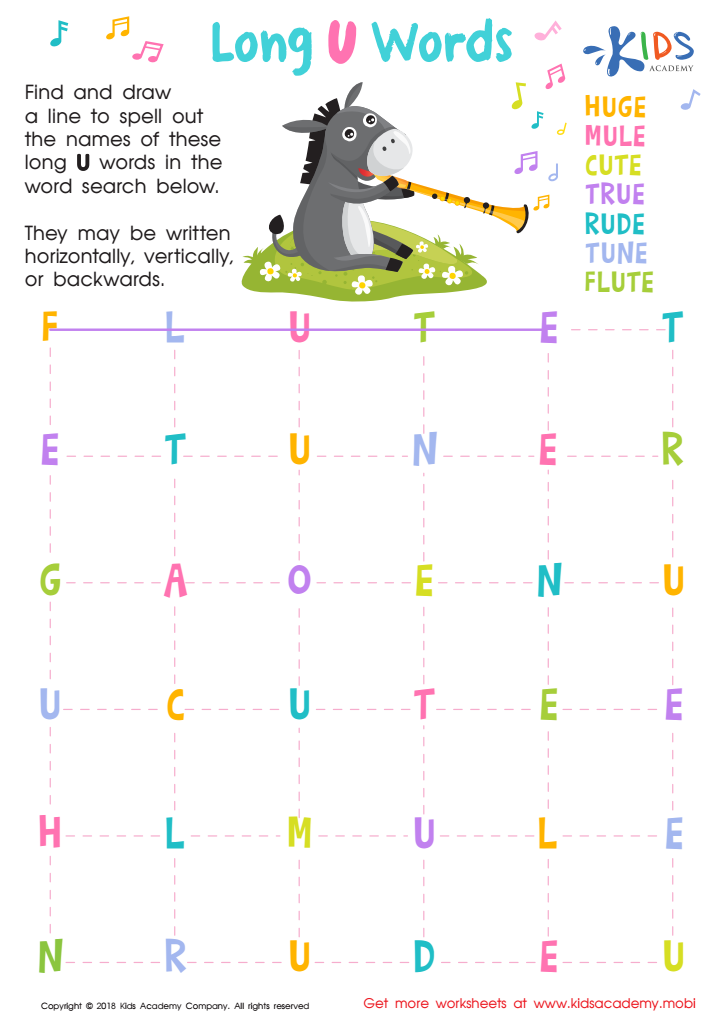

Long /u/ Words Worksheet
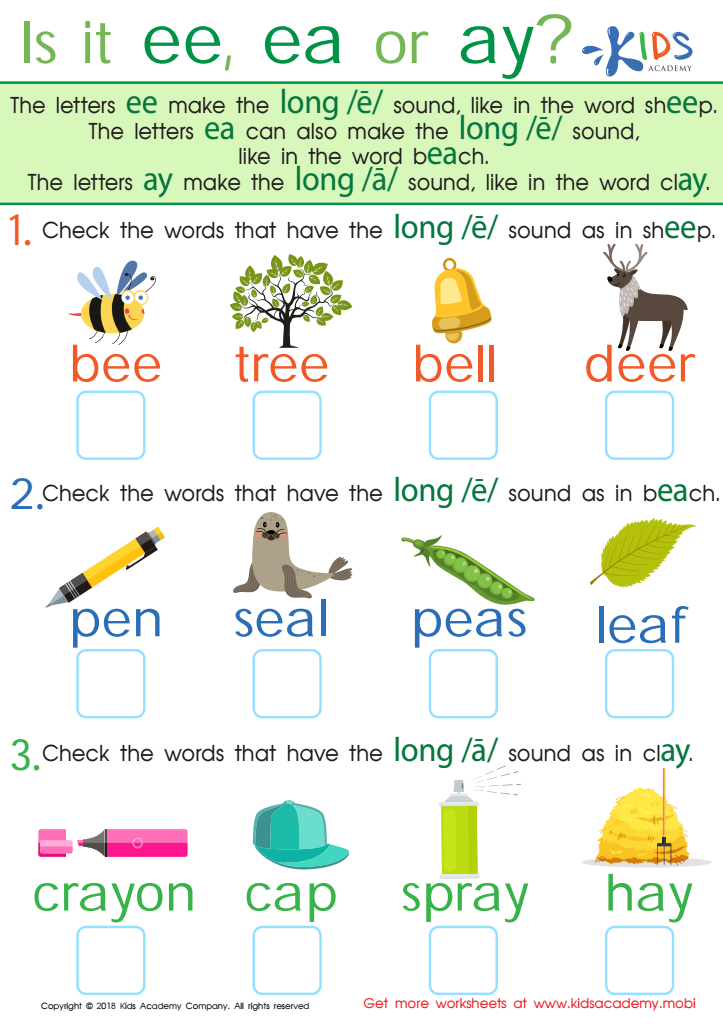

Is It EE, EA, or AY? Worksheet
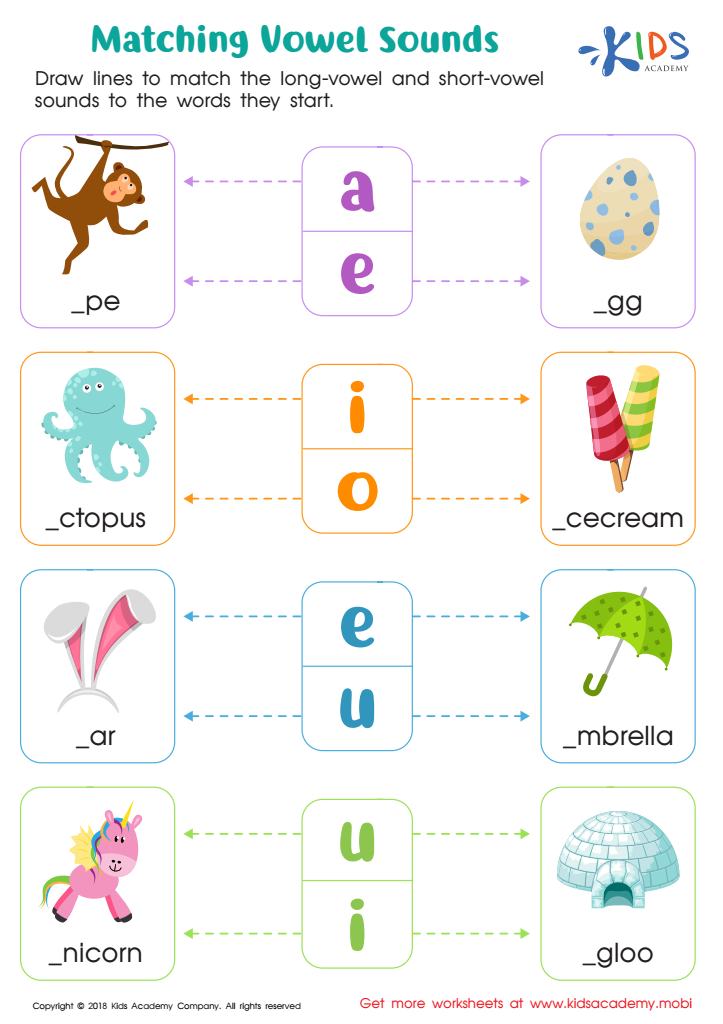

Matching Vowel Sounds Worksheet


Long and Short U Worksheet
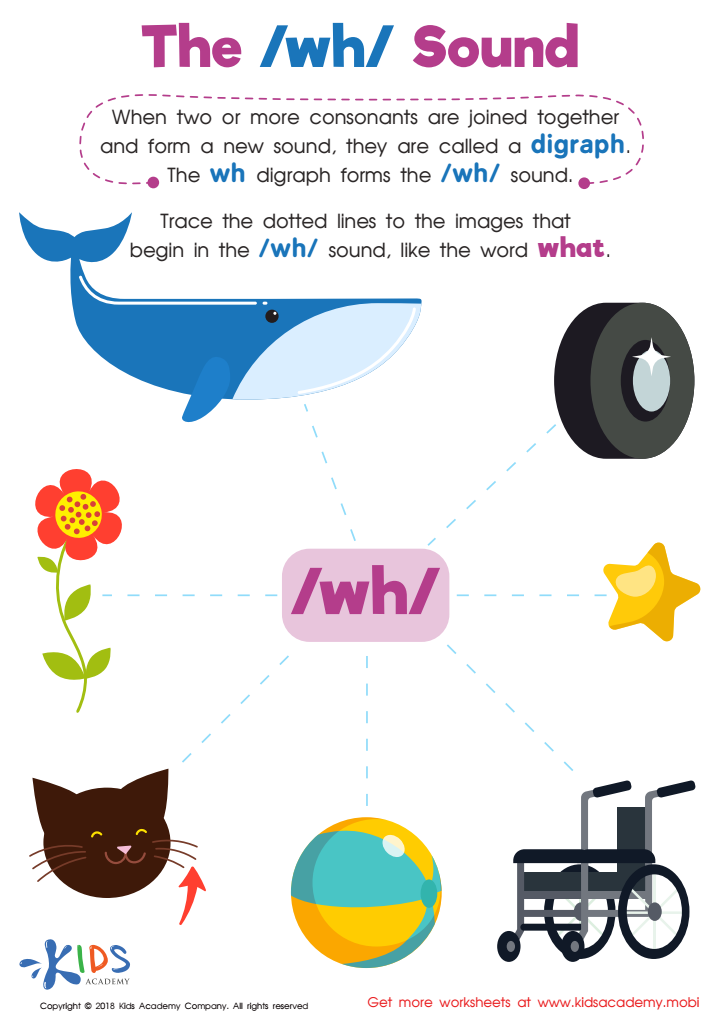

The /wh/ Sound Worksheet
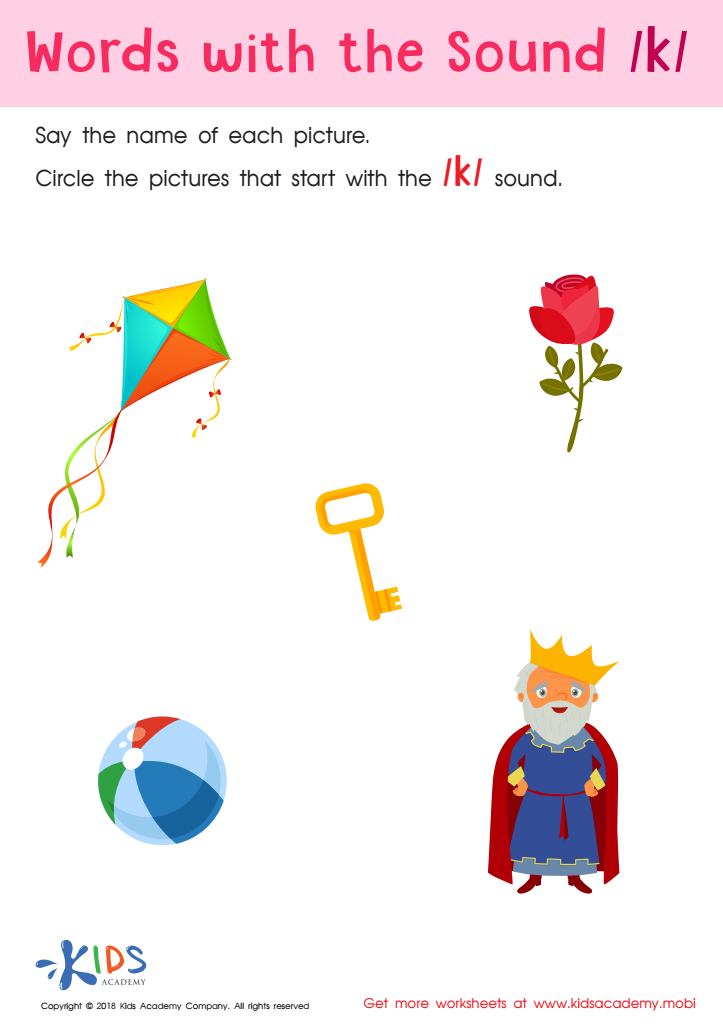

Words with sound k Reading Worksheet
Reading proficiency in early childhood, particularly through methods like Normal Phonics for ages 3-6, is crucial for diverse reasons. First, it lays a strong foundation for literacy skills that are essential throughout a child's education. Mastering phonics helps children understand the relationship between sounds and letters, enabling them to decode words and improve their reading fluency as they progress into higher grades.
Moreover, reading proficiency enhances cognitive development, strengthening skills such as critical thinking, problem-solving, and reasoning. Children who are proficient in reading from a young age tend to perform better academically, not just in literacy but across various subjects, paving the way for broader educational achievements.
Additionally, early literacy also fosters a love for reading, encouraging exploration and discovery. When children recognize that they can manipulate letters and sounds to form words, they gain confidence that spills over into other areas of their learning.
Finally, promoting reading proficiency equips children with the tools they need to navigate a world rich in texts, supporting their future social, emotional, and academic growth. Thus, both parents and teachers play vital roles in guiding children towards becoming proficient readers using approaches like Normal Phonics.
 Assign to My Students
Assign to My Students


















